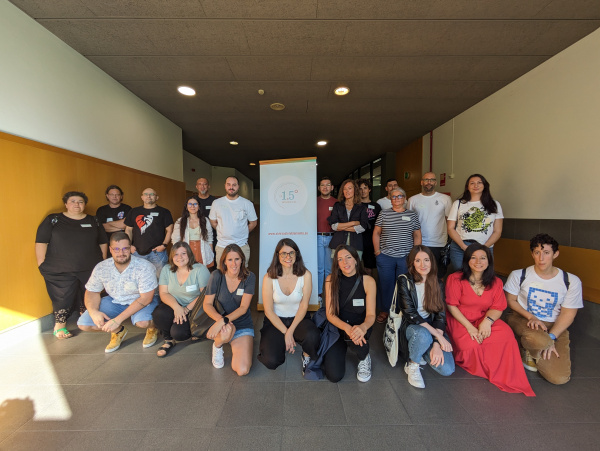
Improving the energy efficiency of the buildings is one of the main policy objectives of the European policy initiatives, specifically, supporting the energy renovations among the existing building stock to reduce the energy consumption and the emissions. For instance, the European Commission delivered the EU Green Deal proposing a series of policy initiatives to ensure the climate neutrality by 2050 (European Commission, 2019). In the same vein, in July 2021, the European Council delivered “Fit for 55” package to cut the greenhouse gas emissions at least 55% by 2030 compared to 1990 levels and achieve net-zero emissions by 2050. “Fit for 55” package proposed a set of policy initiatives with the aim of ensuring EU legislation and policies are in line with the climate goals of the EU Council (European Council, n.d.).
To that end, the European Union revised Energy Performance of Buildings Directive (EPBD) to improve the energy performance of the buildings within the member states. Accordingly, increasing the renovation rate among the worst-performing buildings in each member state countries, introducing smart technologies to improve the energy use within the buildings, gradually phasing out the fossil-fuel based heating systems and providing information on energy performance of the buildings by Energy Performance Certificate (EPC) are the key action plans proposed by the EU (European Commission, 2021). The directive also highlights the importance of each member state should develop and adapt their very own energy renovation strategies since the current building stock, geography and climate in each member state differ.
While EU and the member states develop adequate policy frameworks and regulations to become carbon neutral in 2050, the synergies between academia and civil society would facilitate the development of necessary actions to improve the energy performance of buildings through the active participation of real-world agents e.g. citizens and promoting their engagement to the energy efficient practices in housing. Against to this background, on October 7, the research team from the University of A Coruña, together with the case country partners from Germany, Hungary, Latvia and Sweden, hosted the second round of the Citizen Thinking Labs (CTL) to address the pathways to incorporate 1.5° Lifestyle options in housing, with other consumption areas (nutrition, mobility and leisure) into individual lifestyles. 18 participants representing the demographic characteristics of the Spanish society explored the impacts of low-carbon lifestyle options in housing on their individual lives, as well as identified possible conflicts that might be observed due to the incorporation of low-carbon lifestyles into their personal lives and the society. The participants also suggested some solutions at personal and political levels to tackle these conflicts.
The main findings of the lab show that the Spanish citizens are in the favour of reducing their energy consumption in space heating through reducing the room temperature by 2°C. They consider this will reduce their spending on energy, bringing to financial savings. In fact, they believe that home insulation through renovating the facade and windows will reduce their energy consumption. However, they are concerned that these renovations will increase the rents.
In regards with switching to renewable energy resources for home energy use, installing solar panels would promote access to clean energy (e.g. prosumers which might have positive environmental and societal impacts such as pollution reduction and increase the energy security at homes). However, the participants indicated the risk of rents increase, due to the improvement of the living conditions and the energy efficiency as consequence of solar panels placement.
Outcomes of the lab also include policies addressing these conflicts. For instance, rewarding low-carbon practices with economic incentives or regulating the real estate market could tackle the increasing rents due to housing renovations.
Similarly, as participants highlighted that installing solar panels may boost the social differences due to the high costs they incorporate, they suggested that public support and subsidies might be key to support such action. Besides, promoting vocational training in home renovations and solar panel installations might provide the necessary workforce for these home improvements and reduce renovation costs.
Last but not least, participants reported that there might be some health concerns in regards with lowering the room temperature by 2°C. To tackle this, citizens suggested the promotion of home insulations and renovations through subsidies and economic incentives, that would also boost the energy performances of the buildings and reduce energy losses.
Author: University of A Coruña
References:
European Commission, 2021. Factsheet - Energy Performance of Buildings. https://ec.europa.eu/commission/presscorner/detail/en/fs_21_6691 (accessed on January 30, 2024)
European Commission, 2019. COMMUNICATION FROM THE COMMISSION TO THE EUROPEAN PARLIAMENT, THE EUROPEAN COUNCIL, THE COUNCIL, THE EUROPEAN ECONOMIC AND SOCIAL COMMITTEE AND THE COMMITTEE OF THE REGIONS: The European Green Deal, The European Green Deal. https://doi.org/10.1017/CBO9781107415324.004
European Council, n.d. Fit for 55. https://www.consilium.europa.eu/en/policies/green-deal/fit-for-55-the-eu-plan-for-a-green-transition/#what (accessed on January 30, 2024)

